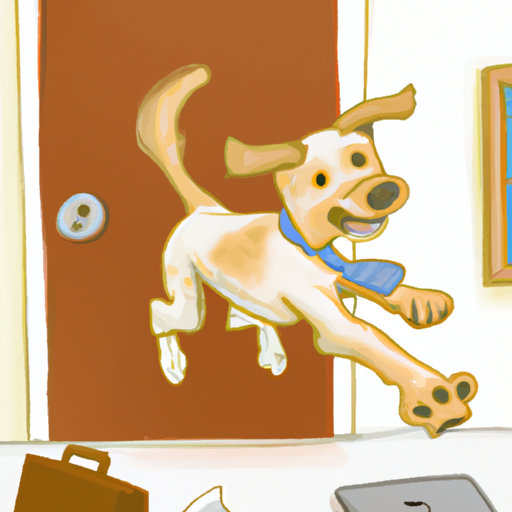A Display of Canine Affection
Your dog’s excitement when you come home isn’t just cute; it’s a sign of their deep affection for you. Dogs are naturally social creatures, and they form strong bonds with their human caregivers. This is more than just a simple conditioning response – it’s a show of love.
Why does your dog get so excited? Consider the following:
- Dogs are pack animals by nature. In the wild, a dog’s survival depends on its ability to form strong bonds with its pack mates. When you come home, your dog’s excitement is their way of saying, “I’m glad you’re back, pack leader!”
- Dogs have an incredible sense of time. They know when it’s time for their walks, meals, and your arrival. When you walk through the door, it confirms their prediction, resulting in sheer joy.
- You are their source of fun and food. You feed them, play with them and provide them with love and care. Your arrival means the promise of all these things.
The Science Behind the Excitement
The same way we humans feel a rush of happiness when we see our loved ones, dogs too experience a surge of oxytocin – the “love hormone”. This hormone plays a crucial role in bonding and social recognition.
| Hormone | Role |
|---|---|
| Oxytocin | Increases feelings of love, bonding, and well-being |
Your Dog’s Unique Personality
Just like humans, each dog has its unique personality. Some dogs may show their excitement by wagging their tails vigorously, others may jump or even whine. Understanding your dog’s personality can help you manage their excitement better.
Managing Your Dog’s Excitement
While it’s endearing to see your dog’s enthusiasm, it’s also essential to manage their excitement to prevent accidents or injuries. Here are a few tips:
- Ignore your dog until they calm down: This may sound harsh, but it’s one of the most effective ways to train your dog to greet you calmly.
- Train your dog to sit or stay when you come in: This is a simple command that can do wonders in controlling their excitement.
- Reward calm behavior: Positive reinforcement is key. When your dog greets you calmly, reward them with a treat or a belly rub.
Understanding Other Dog Behaviors
Your dog’s excitement is a part of their wider behavior. By understanding other common dog behaviors, you can communicate better with your canine companion and strengthen your bond.
- Tail wagging: This is one of the most common ways dogs communicate. A wagging tail can signal happiness, but also fear or aggression.
- Barking: Dogs bark for many reasons, including excitement, fear, or to get your attention.
- Licking: This is a sign of affection in dogs. Dogs also lick to explore their environment or soothe themselves.
FAQ
Q: Why does my dog jump on me when I come home?
A: This is a common way dogs show their excitement and affection. It’s also a way to get your attention.
Q: My dog doesn’t get excited when I come home. Should I be worried?
A: Not necessarily. Each dog has its unique personality. Some dogs might just not be as expressive in showing their excitement.
Q: How can I train my dog to calm down when I come home?
A: You can try ignoring your dog until they calm down, or train them to sit or stay when you come in. Rewarding calm behavior can also help.



